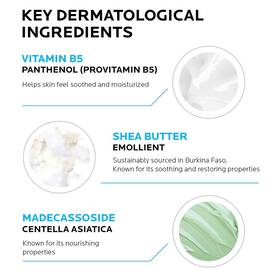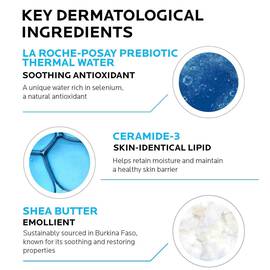WHAT IS PSORIASIS? PSORIASIS SYMPTOMS & TREATMENTS EXPLAINED

Updated: 04/12/2021
SUMMARY: Psoriasis is a common skin condition that tends to be hereditary. It speeds up the life cycle of skin cells causing them to build up at the skin surfacei. It can flare-up during periods of stress, infection, injury to the skin or when using certain medications. The classic symptoms of psoriasis are raised, red plaques covered in silvery scales found on areas such as the knees, elbows, abdomen, lower back and the scalp.ii
The exact cause of psoriasis is still a mystery to doctors and scientists. Research has shown that the immune system and genetics play major roles in its developmentiii. Psoriasis can be treated with creams, light therapy, certain oral medications such as methotrexate, spa therapy or injectable "biologics."
WHAT IS PSORIASIS
Psoriasis is a chronic inflammatory skin diseasev. It is "chronic" because it can last for long periods of time or reoccur, and "inflammatory" because it involves an over-activation of the immune systemvi. Psoriasis tends to occur in people with a genetic predisposition to the condition (meaning it can be hereditary). It often begins in adulthood and tends to flare up at times of stress. There are several different subtypes of psoriasis (plaque, guttate, inverse, pustular and erythrodermic). In this article we will focus on plaque psoriasis which makes up 90% of casesvii.WHAT CAUSES & TRIGGERS PSORIASIS: INTERNAL AND EXTERNAL AGGRESORS
As discussed earlier on scientists do not know the exact causes of psoriasis but they do know that the immune system and genetics play a role. Different triggers can result in psoriasis symptoms.iiiBelow are some common triggers of psoriasis:iii
- Stressiii
- Weatheriii
- Illness (ear infection, strep throat, etc)iii
- Certain common medications including beta-blockers, NSAIDs (ibuprofen, diclofenac, etc.), lithium and malaria treatmentsviii
- Clothing that rubs against skinviii
- Injury to the skin such as sunburn or tattoos can bring on flare-ups. This is called the Koebner phenomenonviii
PSORIASIS SYMPTOMS
What does psoriasis look like?
In plaque psoriasis, people develop rough red patches of thickened skin covered in white scales. These plaques are most frequently found on areas that are subject to friction: knees, elbows, abdomen and lower back. They can also be found on the scalp, hands and feet. Psoriasis sufferers often develop nail changes in the form of pitting or splitting of the nails (known as onycholysis).ix

If you have psoriasis, keep reading to discover your psoriasis treatment options.
HOW TO TREAT PSORIASIS
What are the different psoriasis treatmentsx
Psoriasis creams
The first-line solution for psoriasis are specific creams. Your doctor may prescribe steroid creams or vitamin D3 cream. There are also some great products that you can buy over the counter in the pharmacy. These help to eliminate scaling, prevent plaque thickening and provide long-lasting moisture to effectively soothe itchiness.
Phototherapy for psoriasis
In phototherapy, skin is exposed to a controlled dose of UVA/UVB rays. This can slow down the production of skin cells and reduce plaque formation. But don't take this as a recommendation for sunbathing: In phototherapy the dose of UVA/UVB is carefully calibrated by your doctor.
Oral medications for psoriasis
In very severe forms of psoriasis, your doctor may prescribe tablets. These are usually immune suppressant medications such as methotrexate, to get the hyperactive immune system under control.
Spa therapy aka balneotherapy for psoriasis
Spa therapy including water treatments such as filiformis shower and baths have been shown to be effective for helping reduce psoriasis symptoms.xi
Biologic therapies for psoriasis
Very severe cases of psoriasis are treated with therapies known as "biologics" which are antibodies that are given by injection.
If you are experiencing symptoms of eczema or psoriasis, please consult your doctor for a diagnosis.
NEXT ARTICE: WHAT IS ECZEMA? TYPES OF ECZEMA AND WHAT CAUSES ECZEMA EXPLAINED
Oral medications for psoriasis
In very severe forms of psoriasis, your doctor may prescribe tablets. These are usually immune suppressant medications such as methotrexate, to get the hyperactive immune system under control.
Spa therapy aka balneotherapy for psoriasis
Spa therapy including water treatments such as filiformis shower and baths have been shown to be effective for helping reduce psoriasis symptoms.xi
Biologic therapies for psoriasis
Very severe cases of psoriasis are treated with therapies known as "biologics" which are antibodies that are given by injection.
If you are experiencing symptoms of eczema or psoriasis, please consult your doctor for a diagnosis.
NEXT ARTICE: WHAT IS ECZEMA? TYPES OF ECZEMA AND WHAT CAUSES ECZEMA EXPLAINED
Biologic therapies for psoriasis
Very severe cases of psoriasis are treated with therapies known as "biologics" which are antibodies that are given by injection.
If you are experiencing symptoms of eczema or psoriasis, please consult your doctor for a diagnosis.
NEXT ARTICE: WHAT IS ECZEMA? TYPES OF ECZEMA AND WHAT CAUSES ECZEMA EXPLAINED
References
- https://www.mayoclinic.org/diseases-conditions/psoriasis/symptoms-causes/syc-20355840
- https://www.mayoclinic.org/diseases-conditions/psoriasis/symptoms-causes/syc-20355840
- https://www.psoriasis.org/about-psoriasis/
- https://www.psoriasis.org/treatment-and-care/
- https://www.health.harvard.edu/diseases-and-conditions/psoriasis-more-than-skin-deep
- https://pubmed.ncbi.nlm.nih.gov/22356630/
- https://www.healthline.com/health/psoriasis/facts-statistics-infographic
- https://www.ncbi.nlm.nih.gov/books/NBK553108/
- https://www.mayoclinic.org/diseases-conditions/psoriasis/symptoms-causes/syc-20355840
- https://www.psoriasis.org/treatment-and-care/
- https://www.psoriasis.org/integrative-approaches-to-care/





